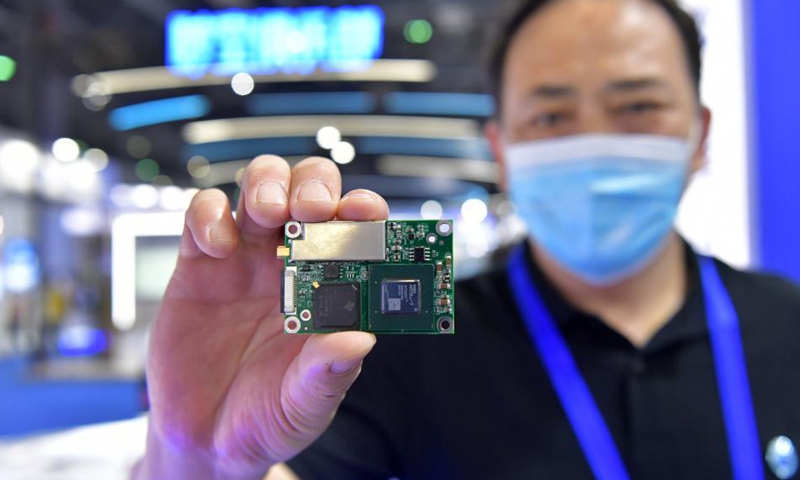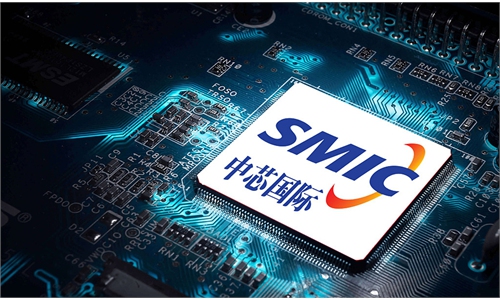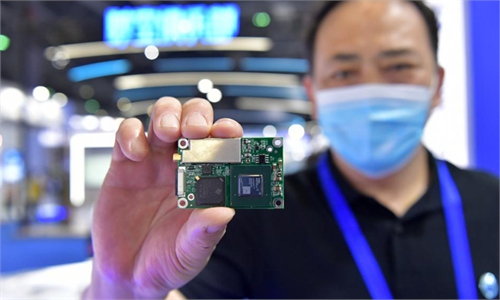
An exhibitor shows a module with an anti-jamming chip during the 12th China Satellite Navigation Expo (CSNE) in Nanchang, capital of east China's Jiangxi Province, May 27, 2021. Photo: Xinhua
The semiconductor division of Chinese tech giant Alibaba Group announced on Tuesday that its self-developed Xuantie embedded central processing unit (CPU) has made technological breakthroughs and achieved a world-class performance.
The product won the first prize in the Zhejiang Science and Technology Awards unveiled on Tuesday, thanks to its innovative breakthroughs in the instruction set, processor architecture and supporting tool chain.
Having realized production capacity of 2 billion units, the CPU has been widely applied to a variety of scenarios and devices, including mobile phones, smart home appliances, automotive electronics and smart grids.
In addition, the Xuantie embedded CPU has been widely used in domestic chips from more than 200 firms, which design their chips based on the CPU, according to the company.
The embedded CPU is seen as the core of Internet of Things (IoT) smart equipment. Global market intelligence firm IDC predicted that there will be 41.6 billion IoT devices in the world in 2025, so the core embedded CPU has huge scope for development.
Pingtouge, the Alibaba chip unit, released its first core processor intellectual property (IP) - Xuantie 910 - in 2019, which can be used in 5G networks, artificial intelligence and autonomous driving, as the e-commerce giant continued its push into advanced technologies.
Meng Jianyi, vice president of Pingtouge, said that the Xuantie embedded CPU will further advance to high performance and explore technological breakthroughs in different fields such as autonomous driving and edge computing.
Liu Dingding, a Beijing-based industry analyst, told the Global Times that chipsets and operating systems are crucial aspects for a technology company in the long run.
As China is taking the lead in some of the AI application areas and limited algorithm engineering spaces, it should also quickly catch up with global leaders in general, especially from the AI hardware infrastructure perspective, he said.
The Xuantie series is based on RISC-V, an open source chip architecture developed by a consortium of tech companies and researchers.
"While advancing self-developed architecture products, our accumulated core technologies are gradually contributing to the open source RISC-V architecture. Pingtouge will work with the industry to promote the ecosystem construction of the RISC-V open source architecture, continue to lower the threshold of chip design, and build a smart, safe and inclusive AIoT chip ecosystem," said Meng.


